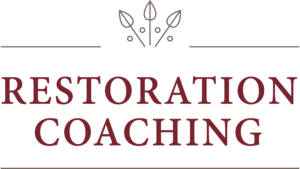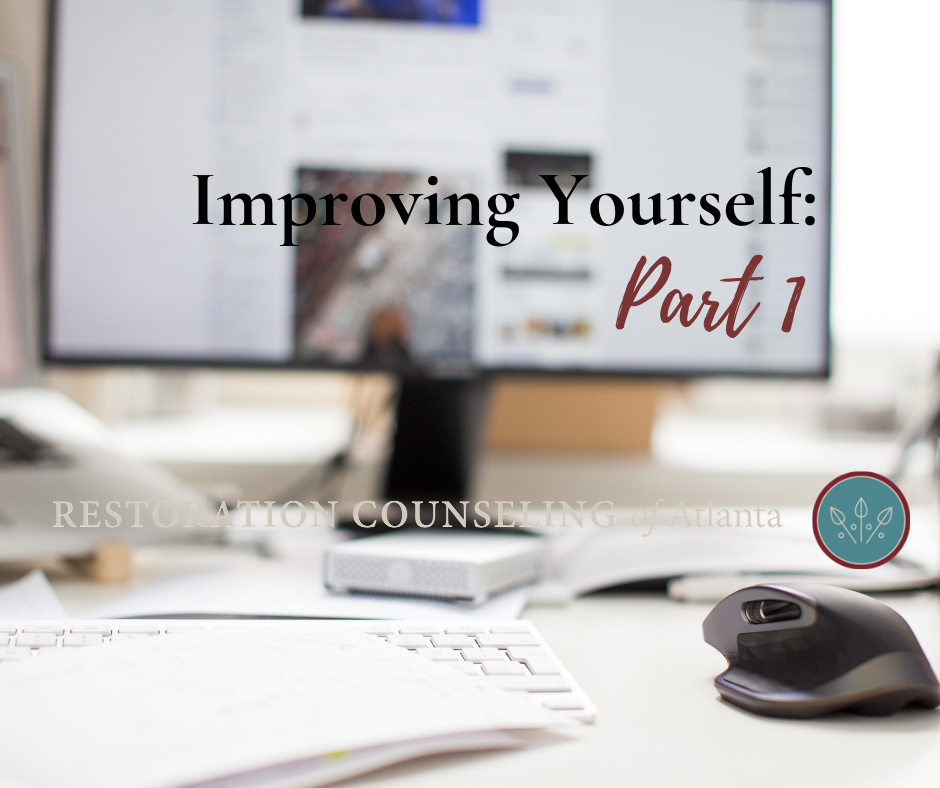As we think about the idea of improving ourselves, it is really helpful to examine different variables in our lives. Those areas should include an honest assessment of circumstances, both internally (mindset and perspectives) and externally (physical resources and time). In this article, I offer a quick overview of some of the key areas that influence our ability to improve ourselves. There are many facets to consider, far too many to cover in one article, but this may help you discover some areas to get your own improvement process started.
Here are a few initial questions to ask yourself:
What are my actual circumstances? Do I have the freedom to make these changes?
What are my abilities? Do I know how to make the changes?
What do I think about myself? Do I know if my thoughts about myself are helping me improve or getting in my way?
These are challenging questions! Sometimes we don’t even notice the factors influencing our circumstances or thought lives. At times like these, it can be really helpful to learn more about where we are and what our options are. In the coming months, we will open a new coaching program that will help you meet and overcome these very challenges with support and direction. In the meantime, let’s continue to survey some categories for deeper exploration.
Tolerating Difficult Things
There are times in our life when we are in a hard situation and we find ourselves “tolerating” things the way they are. By this, we mean that we put up with something frustrating rather than questioning if it can change. It’s absolutely admirable to persevere and press through life’s challenges even if you don’t like them. It’s a different matter if you never asked yourself the question, “Can I change this?” or “Can this get better somehow?” When we look at those types of questions we put aside the idea of just tolerating the situation and we begin to look for new options. Pause for a moment and ask yourself if there are things in your life you’ve been tolerating. This simple reflection can help us start to examine if this is an area that can be improved or is a situation that must remain. Are their relationships in your life you would like to improve? Do you think that you are living in alignment with what God has called you to do or be? These questions can help us gain traction on thinking about the things we’re tolerating and encourage us to set on a path to make things better.
Examining Our Internal Judgements
When we start to examine our thoughts we often find that they are filled with judgments. Some are helpful and others aren’t. We make these assessments about ourselves and others. We can easily detect these judgments when we notice the keyword “should.” This word is a tip-off that we think a situation isn’t going in the right direction. Judgments can be helpful in many parts of our lives, however, there are times when they influence negatively our decisions. In each moment of our day, we want to have alignment with what we are doing. We don’t want to find ourselves constantly and negatively self-critiqued. If we want to improve ourselves, then one key way to do this is to start to examine these “should” based thoughts and determine if we actually agree with them. Some key examples of these types of thoughts include, “I should always….” or “I should never ….”. These judgments were learned from someone or some situation. The question becomes do we want to continue with them as an adult? Consider journaling a little about the shoulds in your life, the ones you want to keep and the ones that aren’t really helping you or others you love or work with.
Reflecting on Our Beliefs
Have you ever thought about the importance of what you believe? In Christianity, we spend a great deal of time talking about beliefs, particularly as they relate to God. Below these key beliefs are often thoughts we have about what we are capable of doing, achieving, and learning. It is almost impossible to improve ourselves without examining our beliefs about ourselves. They have the power to either hurt or help us, depending on our perspective. If you have positive mind frames about yourself such as “I’m capable of learning new things,” you’ll easily rise to your next challenge. If instead, you think, “Everyone else is better than me at this,” you’ll see that negative belief limit your discovery of your own possible improvement in that area. Work to start noticing the types of beliefs you have about yourself. Begin a list of the way you think about your challenges and opportunities, pay particular attention to your beliefs about your abilities and this will help you identify areas for belief improvement.
Learning to Make Changes
If you’ve given thought to your tolerances, your judgments on yourself, and your beliefs about yourself, then you are ready to think about how to change. It is often tricky to determine how to make changes. All the prior steps lead you to the first step in any change process, awareness. Without awareness, you don’t know what to change. Once you realize something needs to be different then you have the option to consider the best way to achieve your goal. Reflect on what you’ve identified as areas for growth or change. Consider what is necessary to get improvement in those areas. Do you need to make changes in your schedule or life? Do you need to learn a new skill or ability? Are your negative thoughts about yourself actually inhibiting your pursuit of progress? As you clarify your understanding of these things then you can set a course to pursue growth and improvement. Often this requires further research and coaching, but you are capable of great things and can grow in surprising ways with the right support and mind shifts.
Not much in life will get better without good old fashioned hard work. The challenges we looked at in this article help us identify why we have trouble doing the hard work or places where the hard work isn’t making enough of a difference. When we are fighting internal battles we can become weary, give up quickly, and wonder why we are so discouraged. Those feelings aren’t always a reflection of our true ability or potential, but more of our internal battle. Don’t give up. It is possible to move past those frustrations.
 If this article inspired you to begin your own journey of self-improvement we would love to help. In the coming months, we will introduce a new coaching program that focuses on areas like this and so much more. If you’d like to be one of the first to hear about it, reach out to us at admin@restorationcounselignatl.com and we will keep you informed about the program’s progress and release.
If this article inspired you to begin your own journey of self-improvement we would love to help. In the coming months, we will introduce a new coaching program that focuses on areas like this and so much more. If you’d like to be one of the first to hear about it, reach out to us at admin@restorationcounselignatl.com and we will keep you informed about the program’s progress and release.
 Written by: Jennifer Stuckert, Clinical Director, LPC
Written by: Jennifer Stuckert, Clinical Director, LPC
Roswell Location
jennifer@restorationcounselingatl.com, ext. 111
Jennifer is passionate about using distinctly Christian counseling to help struggling individuals, couples, and families. With almost two decades of counseling experience, she has spent since 2009 serving as the director and supervisor of the staff of Restoration Counseling of Atlanta. She works with adolescents, families, couples, and individuals helping them gain relief from life challenges through biblically sound methods and a specific emphasis on adaption according to personality and learning styles. She is certified in EMDR and completed extensive course work in Sexual Addiction Counseling.

